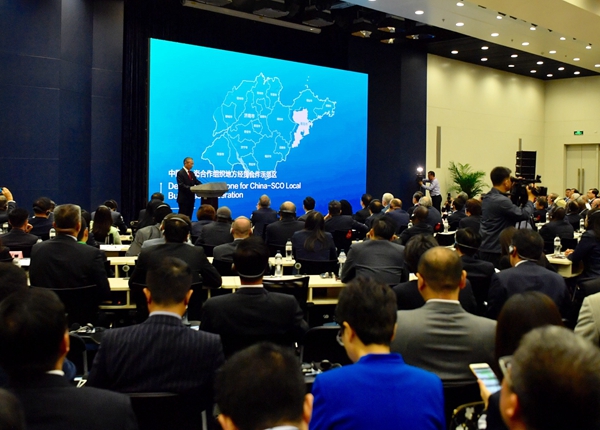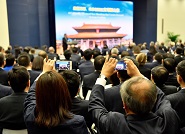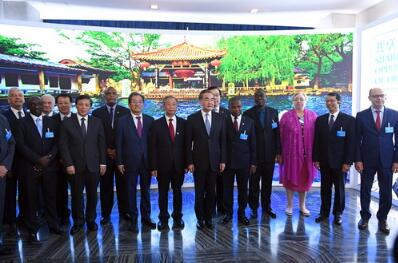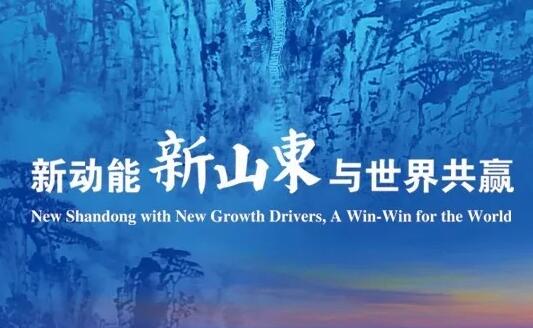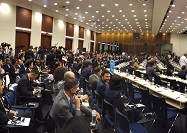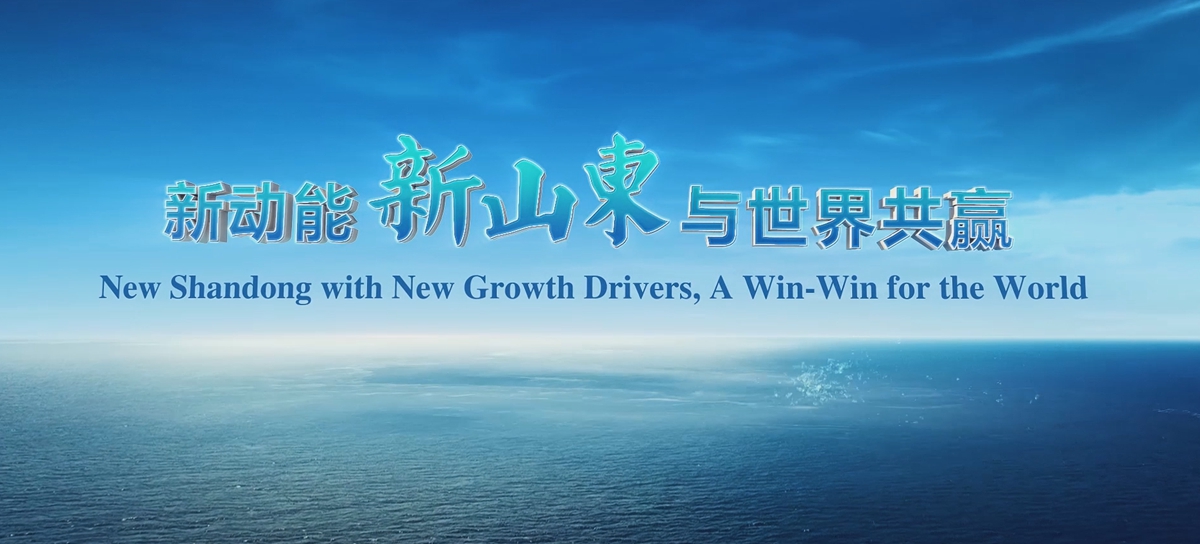I. Central Level
The latest Catalogue for the Guidance of Industries for Foreign Investment was issued to encourage foreign investment in advanced manufacturing, high and new technology, energy conservation, environmental protection, and modern services, and add projects that are in line with industrial structure adjustment and improvement, including food for special medical purpose, virtual reality and augmented reality equipment, key components of 3D printing equipment, and urban parking facilities.
In the service sector, restrictions have been lifted on access to such areas as highway passenger transport, foreign ship cargo handling, credit investigation and rating services, accounting and auditing, and wholesale markets for agricultural products. In the manufacturing sector, restrictions have been lifted on access to rail transit equipment, automotive electronics, new energy vehicle batteries, motorcycles, edible oils and fuel ethanol, and restrictions have been relaxed on access to pure electric vehicles. In the mining industry, restrictions have been lifted on access to unconventional oil and gas, precious metals and lithium mines.
Manufacturing Sector
China has encouraged foreign investors to make investment in high-end manufacturing fields such as new generation of information technology, high-end equipment, new materials and bio-medicine, and overseas enterprises and research institutions to set up global R&D institutions in China. China has supported eligible enterprises in issuing stocks and bonds abroad and encouraged them to engage in various forms of technical cooperation with foreign enterprises.
Health Care
Foreign enterprises have been encouraged to set up R&D and production bases in China to conduct international multi-center clinical trials of new drugs. China has further relaxed the conditions for joint venture hospitals and cooperative hospitals, and gradually expanded the trials for setting up qualified wholly foreign-owned medical institutions.
Food
China has accelerated the exploration of the management system of pre-establishment national treatment and the negative list for foreign investment in the food industry. Foreign investment has been encouraged to enter such areas as nutritious and healthy food production, development and production of natural food additives and the comprehensive utilization of by-products of food processing, and carry out cooperation in the development of new technologies, new products and new equipment.
Trade and Logistics
Domestic trade and logistics enterprises have been encouraged to enhance cooperation with foreign-invested enterprises, and improve business innovation and modern service ideas.
II. Provincial Level
Overall Plan on Building the Comprehensive Pilot Area of Economic Growth Drivers Shift in Shandong approved by the State Council and Circular on Multiple Measures of Actively Utilizing Foreign Investment in the New Era issued by Shandong province have further widened market access of foreign capital, and made the province open wider to the world.
1. Opening wider to the world. The negative list management model has been implemented so that foreign-invested enterprises can equally enter industries, fields and businesses according to the law other than stipulated by the negative list of market access and the special management measures for access of foreign investment. Shandong has further expanded the use of foreign investment in services, manufacturing and mining industries, vigorously developed the service outsourcing industry, supported Yantai in creating a model city of service outsourcing, accelerated the building of electronic ports in pilot areas, extended the practice of processing international trade through a single window, one-stop operation, and integrated customs clearance, and supported the pilot program of parallel imports of automobile in the import port for finished automobile of Qingdao.
2. Encouraging foreign-invested enterprises to participate in the shift of economic growth drivers. In the pilot cities for innovation and development of trade in services, the actual expenditure, equivalent to no more than 8% of the total salaries, on education of employees in technology-based SMEs has been tax-deductible; manufacturing innovation centers and technology innovation centers will be planned and built in areas like artificial intelligence, life science, quantum technology, nanotechnology, space, air and ocean, inspection, testing and certification. The fund of 600 billion RMB yuan for economic growth drivers shift has been established, focusing on 5 emerging sectors namely new generation of information technology, high-end equipment, new energies and new materials, smart marine industry, health and elderly care , and five competitive industries, including green chemical industry, modern high-efficiency agriculture, cultural and creative industry, quality tourism and modern financial industry.
3. The policy of making use of foreign capital. Multinational companies have been encouraged to set up regional headquarters, R&D centers, procurement centers, technology centers and profit settlement centers in Shandong. The listing of foreign-invested enterprises in China enjoys the same support policy as domestic enterprises; efforts have been made to effectively reduce the cost of foreign-invested enterprises.
4. Development of international cooperation parks. Shandong has supported development zones in cooperating with parks of developed countries (regions) and multinational companies for jointly building international cooperation parks of high-end equipment manufacturing, environmental protection, technological innovation and mutual recognition of standards. Efforts have been made to accelerate the planning and development of Sino-German Ecopark, Euro-Asia Economic & Trade Cooperation Industrial Park, China-ROK Industrial Park and China-Israel Eco-industrial Park. Governments at all levels have adopted preferential policies in terms of newly increased land for construction in development zones with sound development and intensive use of land. Various sectors in development zones can use land in the form of long term leasing, leasing before transfer, leasing and transfer .
5. Introduction of investment and talent. Efforts have been made to establish a joint working mechanism for major foreign-funded projects, and focus on solving the difficulties and problems encountered in negotiations and projects launching; foreign investment projects with large investment scale, high technology and good social benefits have enjoyed specific policies. Municipal governments and development zones have been supported in formulating preferential policies for investment incentives, loan interest discount, R&D subsidies, equipment subsidies, training grants, etc., within the permit of policy and authority. Support has been given to projects that make major contribution to employment, economic growth and technological innovation to reduce costs of corporate investment and operation. Emphasis has been put on introducing both investment and talent to attract high-level, urgently needed and highly skilled personnel at home and abroad to lead teams in Shandong for making innovation and starting businesses.
6. Building a world-class business environment. Shandong has made efforts to further facilitate customs clearance, entry and exit, medical treatment and education. Foreign firms have been treated the same as domestic firms when it comes to license applications, standards-setting, government procurement, license administration according to the law and regulation. The legitimate rights and interests of foreign-invested enterprises and investors in Shandong province have been protected in accordance with the law, and efforts have been intensified to crack down on infringement and counterfeits related to patents, registered trademarks and trade secrets.
